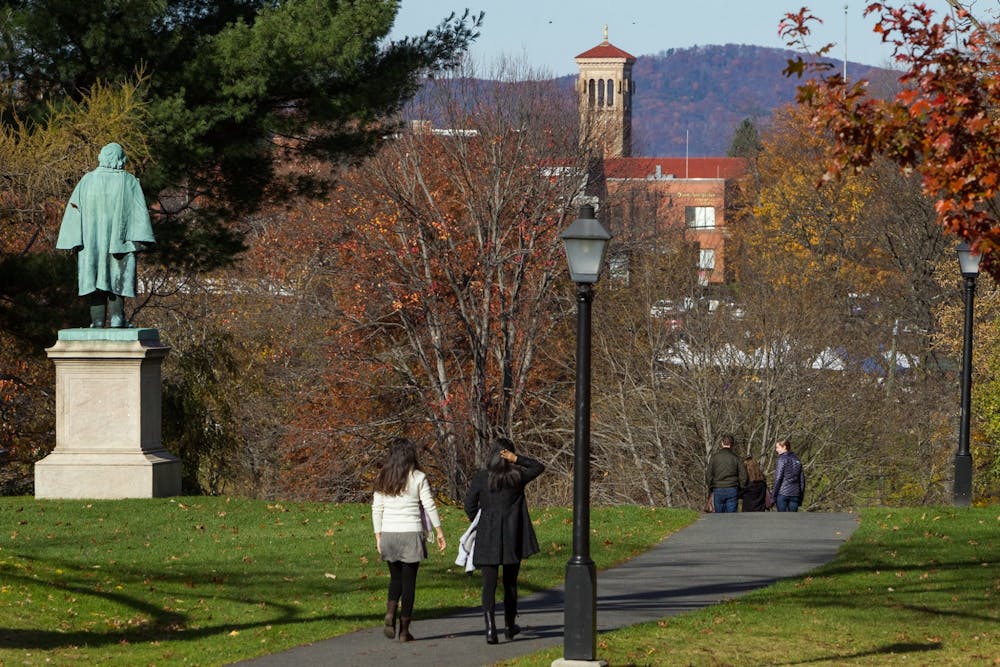On Oct. 20, Amherst College announced that it will “end the legacy admissions preference” — the policy of demonstrating preference for children of alumni in the admissions process. Princeton still presently considers legacy status in its review of undergraduate applications.
The longstanding practice of legacy admissions has come under increasing scrutiny in recent years, often critiqued as a barrier to access for low-income, first-generation, and minority students applying to elite colleges and universities.
“Now is the time to end this historic program that inadvertently limits educational opportunity by granting a preference to those whose parents are graduates of the College,” Amherst president Biddy Martin wrote in the statement announcing the decision.
Amherst’s announcement last Wednesday rekindled conversations of legacy admissions at elite universities and colleges across the country. On Twitter, alumni, professors, and students from Princeton and peer institutions including Williams, Dartmouth, and Harvard, called on their administrations to make a similar move. In a retweet of Amherst’s announcement, Princeton Professor of Sociology and Public Affairs and Director of the Education Research Section Jen Jennings ’00 tagged the University’s Twitter, with the caption “@Princeton, your turn.”
According to a Wall Street Journal report, as of 2020, 56 percent of the country’s top 250 institutions (including all eight members of the Ivy League) reported taking alumni and legacy relations into account during their application review. Amherst is one of the first highly selective institutions to phase out legacy admissions, joining Johns Hopkins University, Michigan Institute of Technology, and California Institute of Technology.
Though legacy admissions remain common practice, the issue may be of heightened visibility at Princeton, where children or stepchildren of alumni currently make up 13.1 percent of the undergraduate student body.
Statistics from the 2021 ‘Prince’ first-year survey reveal additional details, suggesting that the socioeconomic and racial disparities often associated with legacy admissions exist at Princeton.
Of the 15.8 percent of respondents who reported having a parent or grandparent who previously attended Princeton, 36.84 percent reported an annual household income above $500K, compared to 9.89 percent of non-legacy respondents.
Only 1.68 percent of respondents who reported having a parent or grandparent who previously attended Princeton identified as Black or African American, compared to 10.39 percent of non-legacy respondents.
In a statement to the ‘Prince,’ Deputy University Spokesperson Michael Hotchkiss described the role of legacy status in University admissions.
“The application process is the same for all candidates. However, in recognition of the special bond that Princeton has with its alumni, it is considered one factor among many in the process if your mother, father, stepmother, or stepfather attended Princeton,” he wrote.
He also noted that the University’s admissions priorities evolve over time. Indeed, data sets detailing Princeton’s enrollment statistics from over the past 20 years reveal a decreased focus on legacy status in admissions. The reports delineate the factors, such as a student’s grade point average or extracurriculars, that admissions uses to evaluate applications as well as how these factors are weighted in a given year. The last time alumni relations — legacy status — was classified as an “important” admissions factor was in 2003. In all subsequent reports it has been reduced to a “considered” factor.

In an interview with the ‘Prince,’ Jeremy Bernius ’22 advocated for the University to abandon legacy admissions. Bernius is a leader of the Scholars Institute Fellows Program (SIFP), a student organization dedicated to building community and mentorship for low-income and first-generation students on campus.
“When it comes to preferences in admissions, I think those kinds of systems ought to be used in order to rectify social oppression or social inequalities,” Bernius said.
“If someone is the family of previous Princeton grads they’re probably already from an upper class family, a wealthy family, a privileged family, and historically, a white family,” he said. “When it comes to legacy preferences it almost doubly gives them advantages, the ones they were already given by status at birth and then again at admissions.”
Bernius acknowledged the potential financial drawbacks of abandoning legacy admissions, but emphasized that in his view, such a decision would mark a step forward for the Princeton community.
“As a first-generation low-income student on full financial aid I understand that I am able to come to this university because of other families’ giving. I understand that in order to bring more people in on financial aid you still have that legacy preference to build stronger donations,” he explained.
“But I think the financial cost is outweighed by the opportunity Princeton has to make a statement. Ending legacy admissions could signal the University moving in the direction of making preferences in admission only a tool of targeting issues of social inequality,” he told the ‘Prince.’
Tess Weinreich is a news and features contributor for the ‘Prince.’ She can be reached at tw7353@princeton.edu or at @TessWeinreich on Twitter.








